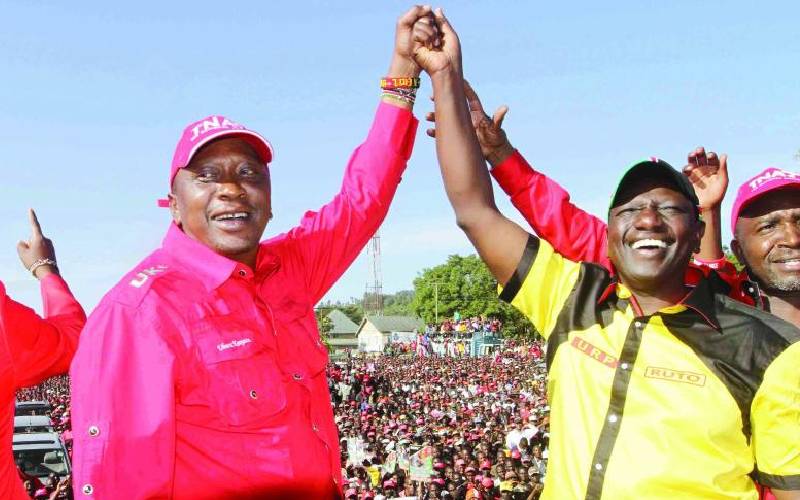×
The Standard e-Paper
Kenya’s Boldest Voice

President Uhuru Kenyatta and his running mate William Ruto when they launched the Jubilee part.[File,Standard]
As the country heads towards General Election next year, politicians are facing the daunting task of crafting a winning coalition.